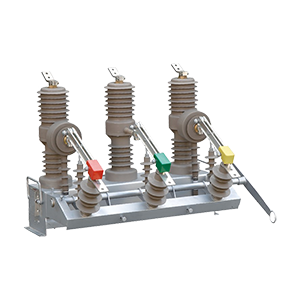FIRST ENERGY LAW TO BE RELEASED SOON! Good news for renewable energy
release time:2020-04-11
On April 10, the National Energy Administration released a draft of the Energy Law of the People's Republic of China, which lasted for 13 years. In particular, the law emphasizes the determination of "the state to adjust and optimize the structure of the energy industry and the consumption structure, and give priority to the development of Renewable Energy" ! The release of the "draft for comments" in the 2017"Energy Law of the People's Republic of China (submitted for review) " on the basis of the revised draft to further improve the formation. To formulate national medium-and long-term aggregate targets for the development and utilization of renewable energy and the target on the proportion of renewable energy in primary energy consumption, to be included in the binding targets of the national economic and Social Development Plan and the annual plan, and divided into provinces, autonomous regions, municipalities directly under the central government to implement. And from: Renewable Energy Consumption Guarantee System, renewable energy incentive policy, renewable energy development, enterprise security obligations, energy-saving government procurement, consumption management policy to take a variety of measures to promote the development of renewable energy. Article 4[ structural optimization ] the state shall adjust and optimize the structure of the energy industry and the consumption structure, give priority to the development of renewable energy, the safe and efficient development of nuclear power, and increase the proportion of non-fossil energy, to promote the clean and efficient use of fossil energy and low-carbon development. Article thirty-two [ optimization of the energy structure ] the state encourages the efficient and clean development and utilization of energy resources, supports the priority development of renewable energy resources, the rational development of fossil energy resources, and the development of distributed energy resources in accordance with local conditions, we will promote the substitution of non-fossil energy for fossil energy and low-carbon energy for high-carbon energy, and support the development and application of new fuels and industrial raw materials that can replace oil and natural gas. Article forty-three [ accelerating the development of non-fossil energy ] the relevant departments under the State Council shall take measures to promote the development of non-fossil energy such as renewable energy and nuclear energy, and shall monitor annually the proportion of non-fossil energy in primary energy consumption. Article forty-four [ renewable energy target system ] countries have made renewable energy a priority area for energy development, to formulate national medium-and long-term aggregate targets for the development and utilization of renewable energy and the target on the proportion of renewable energy in primary energy consumption, to be included in the binding targets of the national economic and Social Development Plan and the annual plan, and divided into provinces, autonomous regions, municipalities directly under the central government to implement. The Competent Department of Energy under the State Council shall, together with the relevant departments under the State Council, monitor the implementation in all provinces, autonomous regions and municipalities directly under the Central Government and conduct annual assessment. Article forty-five [ renewable energy consumption guarantee system ] the state shall establish a renewable energy power consumption guarantee system, to stipulate the minimum proportion of the social electricity consumption of provinces, autonomous regions and municipalities directly under the central government for the consumption of renewable energy. Power supply enterprises, power selling enterprises and power users participating in market-oriented transactions shall meet the minimum specific gravity targets for their respective regions. The market entity that has not completed the minimum proportion of the electricity generated by renewable energy can fulfill its obligations by purchasing the quota from the market entity that has exceeded the quota through the market transaction. The relevant departments under the State Council shall adjust the policies on subsidies for renewable energy power generation according to the transaction situation. Article forty-six [ renewable energy incentive policies ] the state shall formulate relevant fiscal, financial and pricing policies to support the development and utilization of renewable energy. Article forty-seven [ Renewable Energy Development ] the state shall carry out the cascade development of hydropower resources in river basins, actively and orderly advance the construction of large hydropower bases on the premise of ecological priority, and moderately develop medium and small hydropower stations, we should develop wind and solar power generation in accordance with local conditions and develop and utilize biomass energy efficiently by adhering to the principle of combining centralized and distributed power generation with local absorption and dispatch. The state encourages the popularization of the utilization of geothermal energy and solar energy, and actively promotes the development of marine energy. The state encourages the local development and utilization of renewable energy in urban and rural areas, and builds a multi-functional and complementary distributed clean energy supply system. Article forty-eight [ obligations of Enterprise Guarantee ] the State shall implement the system of preferential access to the power grid by renewable energy generation and planned guaranteed purchase of power generation. Power Grid Enterprises shall strengthen the construction of power grids, expand the scope of renewable energy allocation, develop smart power grids and energy storage technologies, and establish energy-saving and low-carbon power dispatching and operating systems. Article sixty-two [ Energy Conservation Government Procurement ] government procurement shall give priority to the procurement of products and services using renewable energy, new energy and energy conservation. Article sixty-three [ Consumption Management Policy ] the state supports the establishment of green energy consumption markets and encourages units and individuals to purchase clean, low-carbon energy such as renewable energy. Drafting notes that the formulation of the "Energy Law" , first, to promote the "four revolutions, one cooperation" of the urgent need for new energy security strategy. The energy production and consumption revolution strategy (2016-2030) , the 13th five-year plan for energy development and 14 special energy plans have been published. The direction and target of China's energy development reform and the top-level design need to be clearly defined in the law, to ensure the direction of energy development and the stability of the basic system; second, to promote the urgent need for high-quality energy development. The energy sector is undergoing deep adjustments in its institutional mechanisms, the reform of the electricity, oil and gas sectors has been pushed forward, the documents on institutional reform and supporting documents have been issued, and the reform work has been basically carried out nationwide, it is urgent to define the legal status of market subjects, establish unified market rules, regulate fair competition order and clear legal relations through legal restrictions and institutional arrangements, to realize high-quality development of energy resources characterized by security, high efficiency, green intelligence, development and sharing, and to modernize the energy governance system and governance capacity. At present, energy market structure and market system of effective competition have not been fully formed, and modern governance means such as energy planning, policy, regulation and standard have not been fully developed The synergy and integration of various energy varieties have not yet been fully realized, and all these require energy-based and comprehensive laws to regulate energy structure, energy market and other comprehensive and overall issues, providing legal guarantee for energy modernization governance.








